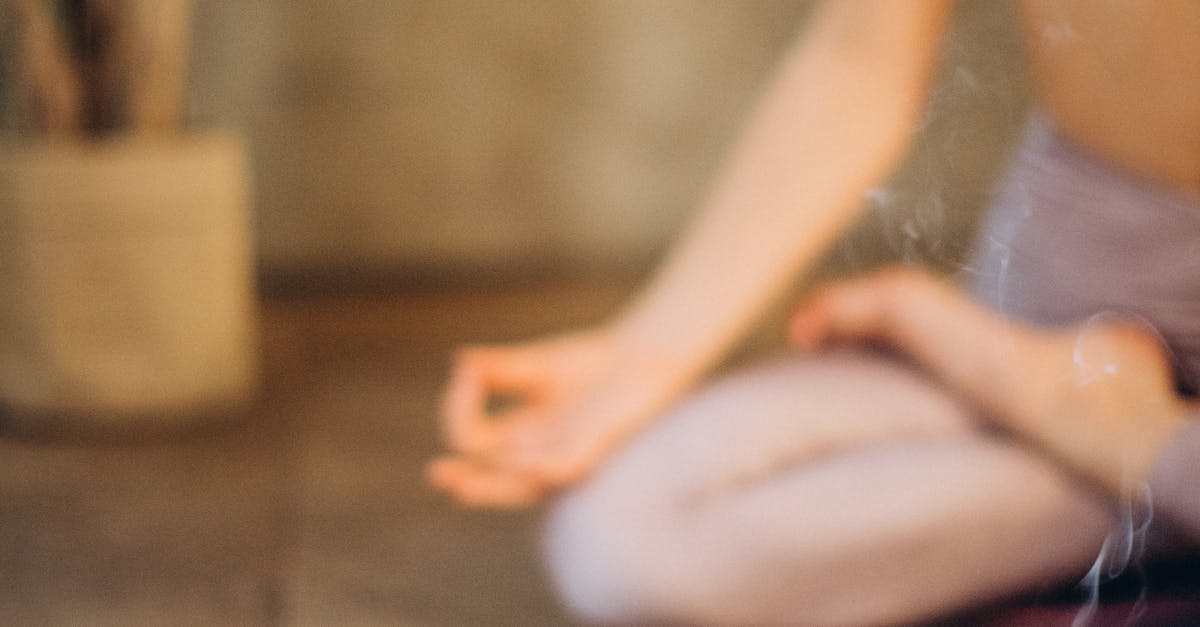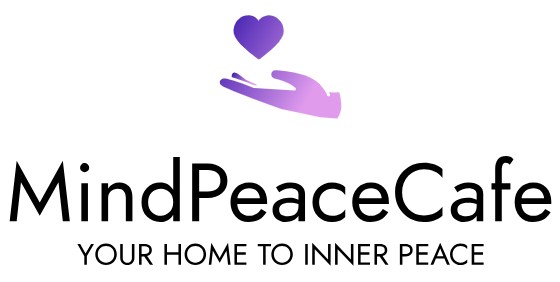Embracing Serenity: Navigating Anxiety with Mindfulness Meditation

In today’s fast-paced world, the relentless demands of life often leave us grappling with anxiety. Nurturing our mental well-being is crucial, and understanding anxiety is the first step to managing it effectively. This article delves into the powerful impact of mindfulness meditation as a potent tool in combating anxiety. As we explore the landscape of anxiety, uncover its various manifestations, and recognize its impact on our daily lives, we’ll discover the transformative role that mindfulness meditation plays in this journey towards inner calm and resilience.
1. Understanding Anxiety
Anxiety is something many of us experience from time to time, and it can have a significant impact on our mental well-being. Feeling anxious is a natural response to stress, but when it becomes overwhelming and starts affecting our daily lives, it’s essential to understand its effects and how to manage it effectively. Generalized anxiety, panic disorder, and social anxiety are just a few examples of the various forms it can take, each with its own unique set of challenges. This exploration will shed light on the signs and symptoms of anxiety, helping us recognize its influence on our mental health and overall quality of life. Understanding anxiety’s multifaceted effects can be the first step in finding ways to alleviate its burden and move towards a more balanced, peaceful state of mind.
Types of Anxiety Disorders
When it comes to anxiety, it’s not a one-size-fits-all experience. There are various types of anxiety disorders, each with its own set of distinctive features and challenges. Generalized anxiety disorder (GAD) involves excessive worry about a wide range of everyday concerns, while panic disorder often manifests as sudden, intense episodes of fear that trigger physical symptoms like a racing heart and shortness of breath. Social anxiety disorder, on the other hand, can lead to overwhelming fear of social situations and being judged by others. Understanding these different forms of anxiety allows us to appreciate the complexities involved in addressing them. By unpacking these varieties, we can better grasp the unique struggles individuals face and tailor support and coping strategies to their specific needs, ultimately fostering a more empathetic and inclusive approach to mental health.
Symptoms and Impact
Recognizing the signs of anxiety is an essential step in understanding its impact on daily life and mental well-being. While everyone experiences anxiety differently, there are common indicators to be aware of, such as persistent feelings of worry or fear, restlessness, difficulty concentrating, and physical symptoms like rapid heart rate or trembling. Beyond these noticeable manifestations, anxiety can also interfere with our ability to engage in social activities, work, or school, impacting our overall quality of life. Furthermore, prolonged anxiety can contribute to fatigue, muscle tension, and sleep disturbances, affecting both our physical and mental health. By shedding light on these symptoms and their effects, we can start to unravel the complexities of anxiety and begin fostering a more supportive and understanding environment for those grappling with its challenges.
2. The Role of Mindfulness Meditation

The role of mindfulness meditation in anxiety recovery is quite remarkable. Mindfulness practice involves being fully present in the moment, acknowledging and accepting one’s feelings and thoughts without judgment. This approach has shown substantial promise in helping individuals manage anxiety. By delving into mindfulness meditation, we uncover its profound impact on anxiety recovery. Through various techniques such as focused breathing, body scan, and loving-kindness meditation, individuals learn to navigate their anxious thoughts and sensations, promoting a sense of inner calm and resilience. Research has demonstrated that mindfulness meditation can rewire the brain, reducing the reactivity of the amygdala, the brain’s fear center, and enhancing the prefrontal cortex’s ability to regulate emotions, encouraging a more balanced response to stress and anxiety triggers. By embracing mindfulness, individuals cultivate a deeper sense of self-awareness, compassion, and emotional stability, providing a powerful foundation for anxiety recovery and overall well-being.
What is Mindfulness Meditation?
Mindfulness meditation is a practice that involves focusing on the present moment and paying attention to thoughts, bodily sensations, and the surrounding environment. This approach emphasizes acceptance and non-judgment, allowing individuals to observe their thoughts and feelings without getting caught up in them. When it comes to combating anxiety, mindfulness meditation provides a powerful tool for acknowledging and managing overwhelming emotions. Through this practice, individuals develop a heightened awareness of their thoughts and feelings, enabling them to respond to stressors with greater clarity and composure. This approach also fosters a sense of self-compassion, encouraging individuals to treat themselves with kindness and understanding, essential elements in navigating the challenges of anxiety. By defining mindfulness meditation and highlighting its application in addressing anxiety, individuals can embark on a journey of self-discovery and resilience, ultimately leading to improved mental well-being.
Scientific Evidence
Scientific research has increasingly substantiated the profound impact of mindfulness meditation on managing anxiety. Studies have shown that regular mindfulness practice can lead to a reduction in symptoms of anxiety, as well as improvements in overall emotional well-being. By reviewing the latest research findings, we gain valuable insights into the effectiveness of mindfulness meditation as a practical tool for anxiety management. Recent studies have highlighted changes in brain activity among individuals who engage in mindfulness practices, demonstrating altered patterns of neural activity associated with emotional regulation and stress reactivity. Additionally, research has emphasized the positive impact of mindfulness meditation on physiological factors linked to anxiety, such as reduced levels of cortisol, the stress hormone. These compelling findings underscore the potential of mindfulness meditation as a promising approach in cultivating mental resilience and alleviating the burden of anxiety.
3. Benefits of Mindfulness Meditation for Anxiety
The benefits of mindfulness meditation for anxiety recovery are both profound and diverse. Mindfulness practices offer a range of positive effects that contribute to alleviating anxiety and promoting overall well-being. One significant advantage is stress reduction, wherein mindfulness meditation helps individuals cultivate a sense of calm and relaxation, mitigating the impact of stressors that often contribute to anxiety. By engaging in mindfulness practices, individuals develop essential coping mechanisms, fostering emotional regulation and resilience, vital components in managing anxiety. Additionally, mindfulness meditation encourages individuals to develop a deeper awareness of their thoughts and emotions, fostering a sense of clarity and equilibrium in navigating the challenges of anxiety. These benefits extend beyond the immediate practice, influencing daily experiences and promoting a more balanced, grounded approach to life’s stressors.
Stress Reduction
Stress reduction through mindfulness meditation offers a powerful pathway to alleviating anxiety and promoting overall well-being. Mindfulness practices provide a unique approach to reducing stress by encouraging individuals to cultivate a deeper awareness of the present moment. This heightened awareness enables individuals to recognize stressors and their associated physical and emotional responses, empowering them to respond with greater clarity and composure. Through mindfulness meditation, individuals can develop the capacity to regulate their stress levels, fostering a sense of inner calm and resilience crucial in managing anxiety. This practice also promotes relaxation, offering individuals a reprieve from the relentless demands of daily life, thereby creating a space for restoration and emotional rejuvenation.
Emotional Regulation
Emotional regulation is a key aspect of managing anxiety, and mindfulness meditation plays a pivotal role in cultivating emotional resilience and stability. Through mindfulness practices, individuals learn to acknowledge and accept their emotions, providing them with the tools to navigate challenging feelings with greater ease and clarity. This approach encourages individuals to observe their emotions without judgment, allowing for a more balanced and composed response to stressful situations. By engaging in mindfulness meditation, individuals can develop the capacity to recognize and process their emotional reactions, fostering a deeper sense of self-awareness and understanding. This, in turn, contributes to a more grounded and stable emotional state, essential for effectively managing anxiety.
4. Incorporating Mindfulness into Daily Routine
Incorporating mindfulness into daily routines can be highly beneficial for overall mental well-being. To integrate mindfulness meditation into everyday life, start by allocating a specific time for practice, whether it’s in the morning to set a positive tone for the day, during a lunch break to recenter, or in the evening as a way to unwind and transition into a restful state. Additionally, creating a dedicated space for mindfulness practice, even if it’s just a quiet corner of a room, can help signal to the mind that it’s time to focus and engage in the present moment. It’s also essential to approach mindfulness with an open mind, acknowledging that thoughts may arise during practice, and that’s perfectly normal. Over time, individuals may find themselves naturally incorporating mindfulness into various daily activities, such as mindful eating, walking, or even moments of quiet reflection, further enriching their overall experience of life
Mindfulness Practices
Incorporating mindfulness practices into your daily routine doesn’t have to be complicated. Simple, accessible exercises can make a significant impact on your overall well-being. One such practice is mindful breathing, which involves focusing on the sensation of your breath, allowing it to anchor you in the present moment. Another accessible exercise is body scan meditation, where you pay attention to each part of your body, gradually releasing tension and promoting relaxation. Additionally, engaging in mindful walking, whether indoors or outdoors, can help you connect with your surroundings and foster a sense of calm and clarity. These uncomplicated practices cater to individuals seeking to incorporate meditation into their routine, offering accessible entry points to the transformative world of mindfulness.
Building Consistency
Building consistency in mindfulness practice requires integrating small but meaningful habits into your daily life. Start by setting achievable goals, such as practicing mindfulness for a few minutes each day, gradually increasing the duration as you become more comfortable. Additionally, linking mindfulness to existing habits, such as practicing it after brushing your teeth or before meals, can help solidify this practice into your daily routine. It’s essential to be patient and gentle with yourself, acknowledging that consistency takes time to develop. Embracing mindfulness as a non-judgmental practice means being kind to yourself on days when your routine feels disrupted. Lastly, finding a supportive community, whether in person or online, can offer encouragement and accountability, fostering a sense of shared purpose in building and maintaining mindfulness habits amidst daily commitments and responsibilities.
How long does it take to see the benefits of mindfulness meditation in managing anxiety?
The timeline for experiencing the benefits of mindfulness meditation can vary from person to person. Some individuals notice a difference after just a few weeks of regular practice, while for others, it may take longer. Consistency is key, so committing to a regular practice and being patient with the process can yield positive results over time.
Can mindfulness meditation completely eliminate anxiety?
While mindfulness meditation can be a powerful tool for managing anxiety, it’s essential to understand that it may not entirely eliminate anxiety. Instead, it equips individuals with coping mechanisms, emotional resilience, and a more balanced perspective, leading to a reduction in the severity and frequency of anxious feelings.
How can I incorporate mindfulness into my busy schedule?
Incorporating mindfulness into a busy schedule is possible by starting with small, manageable steps. It could involve integrating short mindfulness exercises throughout the day, such as focusing on your breath for a few minutes, finding moments for mindful walking, or taking a mindful pause during transitions between tasks.




